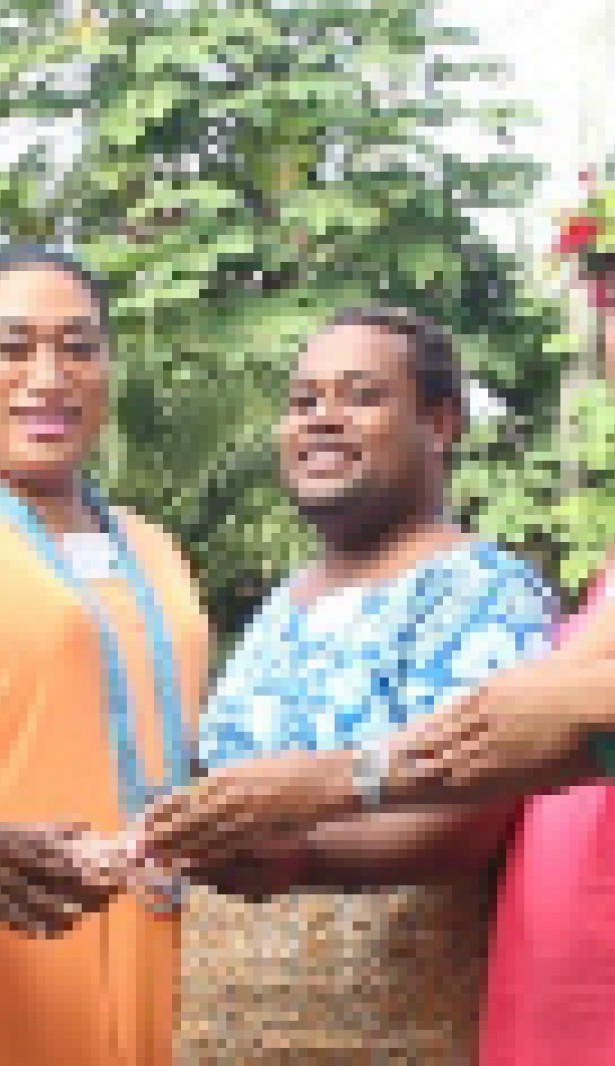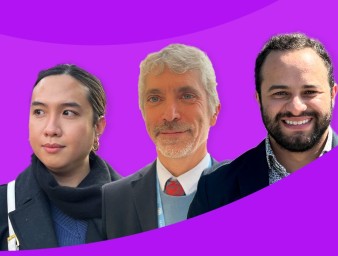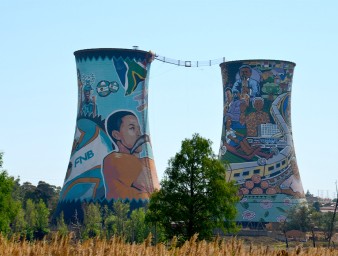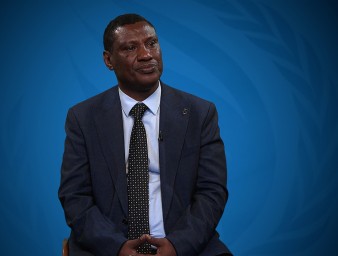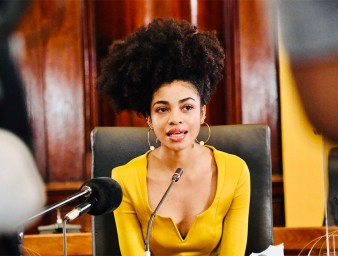Promoting LGBTI equality in the Pacific
11 August 2015
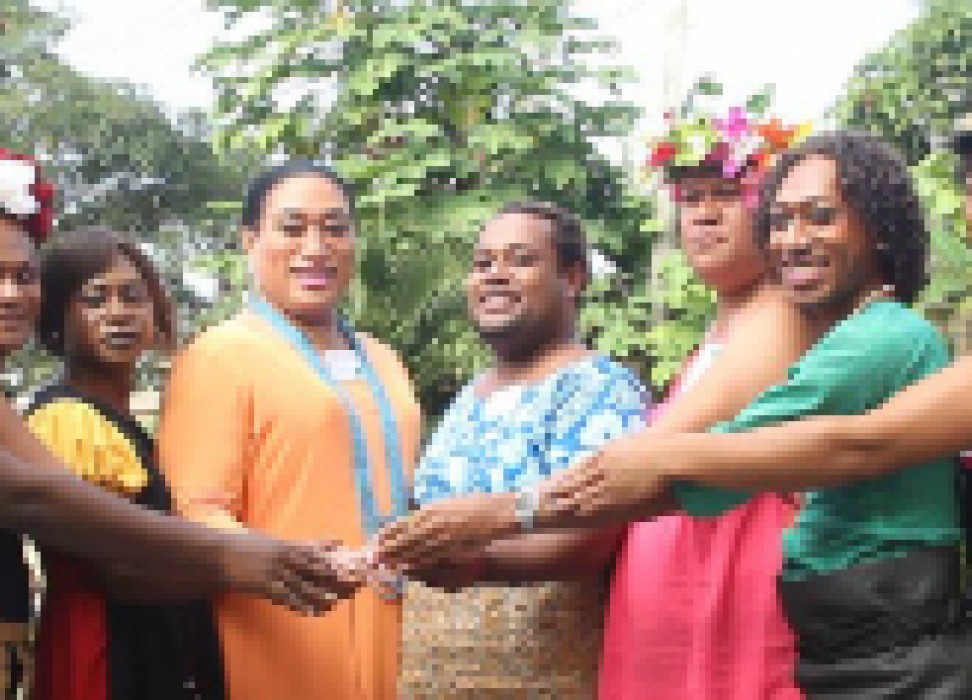
“I was the first one to wear a dress to church,” said Joey Joeleen Mataele, the Chair of the regional umbrella organizations Pacific Sexual Diversity Network. Mataele identifies as a Leiti, the inclusive term for transgender women and gay and bisexual men in Tonga.
“Mass had already started, but instead of everybody watching the priest, they were watching me… I said to myself, I am what I am, and no one is going to change this; this is the life I want to live. I feel comfortable as a female and no one is going to take that right away from me,” Mataele said.
Mataele was speaking at the regional Pacific launch event of the UN Free & Equal campaign, held in Suva, Fiji in August, which was organized by the UN Human Rights Office for the Pacific, along with other UN agencies, civil society organizations and diplomatic missions, to highlight sexual and gender diversity in the region and promote respect for the rights of lesbian, gay, bisexual, transgender and intersex (LGBTI) Pacific Islanders.
In recent years, a series of United Nations resolutions have expressed concern at the prevalence of discrimination and violence against individuals based on their sexual orientation and gender identity. The global Free & Equal campaign was launched in South Africa in 2013, responding to the need to address homophobic and transphobic attitudes through education.
“I am a proud ally of the cause for LGBTI equality and of the Free & Equal campaign. I refuse to be silent in the face of prejudice of any kind,” said H.E. Ratu Epeli Nailatikau, President of Fiji, in his welcome address.
The event brought together more than 120 people from across the region, including representatives of governments, civil society, UN agencies, religious communities, national human rights institutions and others calling for greater respect for LGBTI people in the Pacific. The event featured music performances by Kiti Niumataiwalu, the Voice of Fiji, and the Rainbow Pacific Free & Equal Choir (a choir created for the campaign).
Two new campaign videos were screened showcasing the faces and voices of the LGBTI community and their supporters from across the Pacific, including the President of Fiji and UN Secretary-General Ban Ki-moon.
During the official event, which featured a number of high-level speakers, Karen Allen, UN Resident Coordinator ad interim, urged all of the Pacific States to decriminalize same-sex relations and adopt laws that prohibit discrimination based on sexual orientation or gender identity. “Same-sex relations remain criminal offences in eight countries in the region. In most cases, these laws are a legacy of the 19th century colonial powers,” she said.
Louisa Wall, a Member of Parliament of New Zealand, stressed the importance for governments and civil society to work together. “The decriminalization of homosexuality in New Zealand was eventually successful because politicians worked with the people,” she said. “This change was hard fought, enabled by collective action and steadfast advocacy."
“You can have laws, but attitudes also need to change,” said Aiyaz Sayed-Khaiyum, Acting Prime Minister and Attorney-General of Fiji, who spoke of Fiji’s constitutional ban on discrimination on the basis of sexual orientation or gender identity and expression.
Gillio “Gigi” Baxter of the V-Pride Foundation, a community support group in Vanuatu, and star of the Vanuatu television series, Love Patrol, highlighted the importance of public education as a way of changing attitudes. Baxter said that the television series has been able to do just that by featuring the lives and stories of LGBTI people.
Catherine Phuong, Acting Head of the UN Human Rights Office for the Pacific, said that all stakeholders must take a stand against prejudice and support LGBTI colleagues, friends and family. “We are inviting all of you to carry the torch together and use the campaign to spread the message of equal rights for all people,” she said.
11 August 2015
